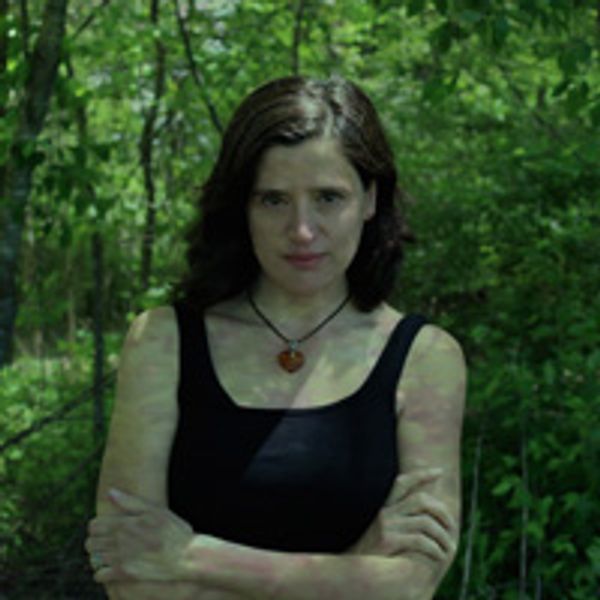Lia Purpura, Decaying Wood (detail), featured in AGNI 102
Why I Missed The Reading
Over the last twenty-five years, I’ve gone to countless readings. Admittedly, most of them occurred in the first half of that time. My attendance dropped off dramatically when geography and circumstance became serious obstacles. Raising kids, living in rural areas—now these things have changed again. The kids are nearly grown, and I live in a place where I could attend a reading almost any day I want. But what I’ve found is that I often don’t want to.
There are certain readings I remember as almost life-altering experiences. In the early 1990’s, a language poet with beautiful, sparkling energy illuminated his work in such a moving and inspiring way that I thought of his poems for many years afterwards. When I examine my bookshelf these days, however, that particular volume is not one I feel compelled to return to. My experience of his work was so intertwined with his presence, his manner of presenting it, that its power has faded for me over the years. There’s still one poem I remember and think of, but it was the rare one that he read straight through. Remarkably, he interrupted himself throughout the rest to help us along the complex path of his difficult work. This was something I’d never seen before, and, as a young poet, I appreciated it.
Another particularly memorable reading was also by a writer of difficult work. She possessed a presence, intellect and charisma that I’ve rarely encountered. Her gestures, her emotional manner, her way of connecting with the audience, infused work that was not warm with warmth. But, again, I find that I want that heat to rise right off the page—not to require either a presence or the memory of a presence—to make me want to read it repeatedly over many years.
What happens when I’m alone with a book, a tether between my mind and the text, has an intensity that could never be replicated in a public place, in the middle of navigating social contracts and the like. To me, being at the reading is less valuable, ultimately, and is about something other than the work. In part, it’s about being supportive of the writing community. But in order to be a lifelong writer, I have to be profoundly selfish with my time. And energy starts to wane just as obligations begin to drop away. I might finally have time to go to the reading, I just no longer have the will.
As a student, I loved readings. I had limitless vitality, plenty of time, and I was living in a city with great public transportation. I wanted to go out and be with other poets and learn about poets and the ways they presented their work. I wrote reviews of readings for a poetry newsletter. I thought this aspect of my life as a poet would be endlessly exciting.
But now I just want to cobble together the energy to write. Full disclosure: When a book is newly released, I myself give a reading, one reading, locally. And, yes, I feel pretty bad asking people to turn out when I’m such a bad citizen. The need to do so, if it exists outside of my own mind, has driven me to enhance these events with other media—poem-films, for instance.
Perhaps it isn’t surprising that the performative aspect of poetry is far less a part of my life as a poet than I once thought it would be. As the years I’ve spent at this enterprise amass into decades, what I hope to do is make something that will transcend my presence, something that will stand when I can no longer stand in front of it, next to it, stopping mid-sentence to explain.
Will I regret the evenings I spent reading instead of listening to someone read? To be fair, I still go to readings, some of which are moving, engaging or electrifying—though not always in the ways I might expect. A recent experience went like this: I saw a poet read from her work, and, well, I did not love it. Then I read her book and was shocked at its astonishing quality. I want to write a book that even my presence can’t ruin. That’s something to contemplate as I send my apologies for skipping the reading, again.

Carolyn Guinzio
Carolyn Guinzio is the author of six poetry collections, most recently How Much of What Falls Will Be Left When It Gets to the Ground? (Tolsun Books, 2018) and Ozark Crows (Spuyten Duyvil, 2018). Among her previous books are Spine (Parlor Press, 2016) and Spoke & Dark (Red Hen Press, 2012), winner of the To The Lighthouse Prize given by the A Room Of Her Own Foundation. Her work has appeared in The New Yorker, BOMB, Harvard Review, AGNI, Entropy, Boston Review, and elsewhere. Her website is carolynguinzio.tumblr.com. (updated 11/2018)
